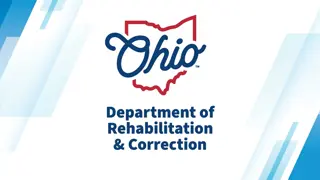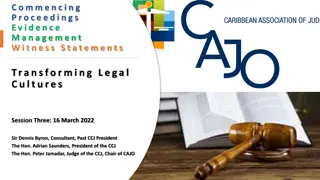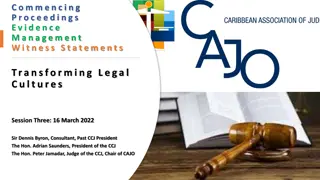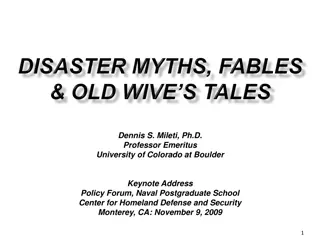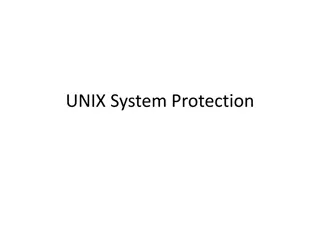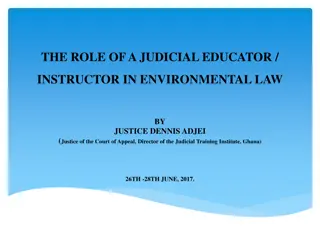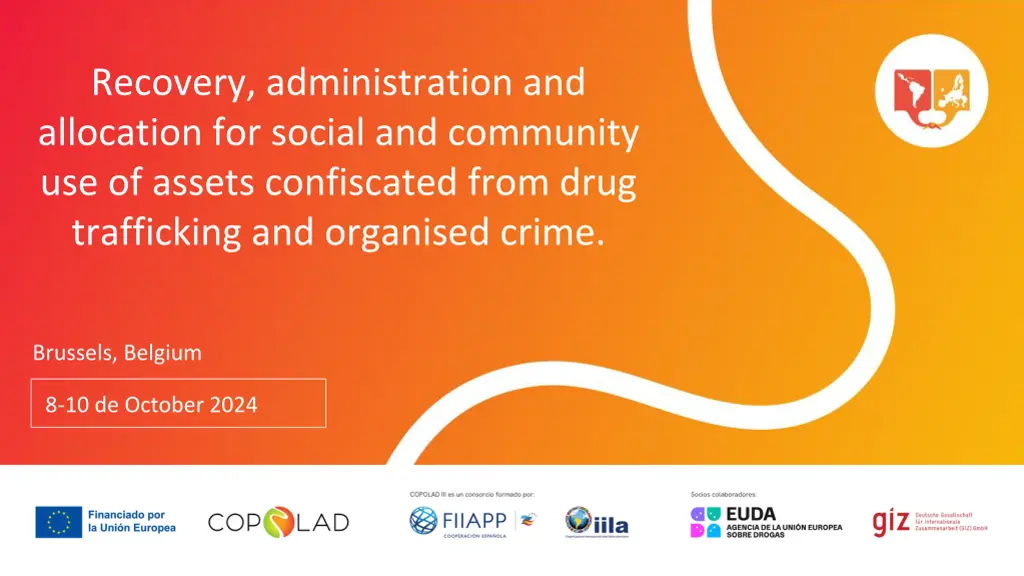
Challenges and Management of Seized Assets in International Networks
Explore the complexities of managing seized assets from drug trafficking and organized crime, including recommendations from various international organizations and the importance of effective asset management. Learn about the development of asset management bodies in Latin America and existing bodies in different countries.
Download Presentation

Please find below an Image/Link to download the presentation.
The content on the website is provided AS IS for your information and personal use only. It may not be sold, licensed, or shared on other websites without obtaining consent from the author. If you encounter any issues during the download, it is possible that the publisher has removed the file from their server.
You are allowed to download the files provided on this website for personal or commercial use, subject to the condition that they are used lawfully. All files are the property of their respective owners.
The content on the website is provided AS IS for your information and personal use only. It may not be sold, licensed, or shared on other websites without obtaining consent from the author.
E N D
Presentation Transcript
Recovery, administration and allocation for social and community use of assets confiscated from drug trafficking and organised crime. Brussels, Belgium 8-10 de October 2024
Challenges, prospects and risks related to the management of seized and confiscated assets Various organisations such as CICAD/OAS, UNODC, Model Law on Extinction of Ownership, Initiative, World Bank and FATF. recommendations from international EU CEART Project, StAR G20, and the Basel Institute on Governance, incorporate asset management as a fundamental principle of effective recovery of illicit assets. FATF, amends recommendations 4 and 38 and assesses the effectiveness of countries in asset recovery through different forms of confiscation and effective asset management at all stages of the process. EU Directive 2024/1260, which encourages states to ensure the social and community re-use of confiscated assets by ensuring proper asset management. DESAF OS COMPARTIDOS ENTRE LAS REGIONES UE/CELAC EN MATERIA DE DROGAS - REUNI N PRESENCIAL DE AGENCIAS DE DROGAS UE/CELAC EN BRUSELAS.
They are auxiliary bodies of justice in charge of the reception, inventory, custody, preservation and administration, as well as those in charge of the sale or disposal in advance or with judgement of the assets for their destination in accordance with the national legal system. Asset management bodies in LA El desarrollo de los organismos de administraci n o gesti n de los activos incautados y decomisados en Am rica Latina, lleva alrededor de 15 a os de evoluci n y en constante perfeccionamiento, dado que la naturaleza de los activos incautados en los procedimientos de decomiso sin condena (extinci n de dominio), son cada vez m s complejos y por ello m s dif cil de custodiar, mantener y preservar hasta la decisi n definitiva por autoridad competente. Strengthen investigative, law enforcement and law enforcement agencies. To drug prevention and treatment programmes, in those cases where the proceeds come from drug trafficking offences. To the use and destination programmes.Attention to victims for social and community The provisional use of seized assets is a common practice in legal systems, and these assets are usually destined to law enforcement agencies or public entities for social and community use through agreements. DESAF OS COMPARTIDOS ENTRE LAS REGIONES UE/CELAC EN MATERIA DE DROGAS - REUNI N PRESENCIAL DE AGENCIAS DE DROGAS UE/CELAC EN BRUSELAS.
N Pa s Instituci n EXISTING BODIES IN LATIN AMERICA 1 Argentina Agencia de Administraci n de Bienes del Estado 2 Bolivia Direcci n General de Registro, Control y Administraci n de Bienes 3 Brasil Secretaria Nacional de Pol ticas sobre Drogas e Gest o de Ativos 4 Colombia Sociedad Activos Especiales 5 Costa Rica Instituto Costarricense sobre Drogas, Unidad de Recuperaci n de Activos 6 Ecuador Secretar a T cnica de Gesti n Inmobiliaria del Sector P blico 7 Trinidad & Tobago Civil Asset Recovery and Management Agency 8 El Salvador Consejo Nacional de Administraci n de Bienes (CONAB) 9 Guatemala Secretar a de Administraci n de Bienes en Extinci n de Dominio 10 Honduras Oficina Administradora de Bienes Incautados (OABI) 11 M xico Instituto para Devolver al Pueblo lo Robado (INDEP) 12 Nicaragua Unidad Administradora de Bienes Incautados, Decomisados o Abandonados 13 Panam Direcci n de Administraci n de Bienes Aprehendidos, Min Econom a y Finanza 14 Paraguay Secretar a Nacional de Bienes Incautados y Decomisados 15 Per Programa Nacional de Bienes Incautados (PRONABI) 16 Rep blica Dominicana Instituto Nacional de Custodia y Administraci n de Bienes Incautados, Decomisados y en Extinci n de Dominio 17 Uruguay Fondo de Bienes Decomisados (FBD) de la Junta Nacional de Drogas 18 Venezuela Servicio Nacional de Administraci n y Enajenaci n de Bienes Asegurados o Incautados, Confiscados y Decomisados DESAF OS COMPARTIDOS ENTRE LAS REGIONES UE/CELAC EN MATERIA DE DROGAS - REUNI N PRESENCIAL DE AGENCIAS DE DROGAS UE/CELAC EN BRUSELAS.
BENEFITS OF SOCIAL REUSE CONCEPT OF SOCIAL REUSE Reducing the impact of crime: By reinvesting seized assets back into the community, it helps to mitigate the harm caused by criminal activities. Strengthening social cohesion: These initiatives can strengthen the sense of community and trust in local authorities by seeing a positive use of seized resources. Promoting social justice: It provides a form of symbolic reparation to indirect victims of crime, improving their environment and opportunities. Social vindication: By reusing assets seized from criminal organisations, it turns what was once a symbol of illicit power into a resource for the community, sending a powerful message that crime does not pay. Promoting a culture of legality: By allocating these assets to social projects, it promotes legality and reinforces trust in institutions, demonstrating that the state acts effectively against criminality. Public, social and community reuse of confiscated assets refers to the process of using illicit assets confiscated from criminal directly benefit society communities. This concept seeks to transform resources previously linked to criminality into positive instruments community development. organisations and to affected of social change and Furthermore, the earmarking of confiscated assets not only provides additional financial resources for the community, but can also have a significant positive impact in terms of public safety and justice when a portion is earmarked for strengthening law enforcement agencies. DESAF OS COMPARTIDOS ENTRE LAS REGIONES UE/CELAC EN MATERIA DE DROGAS - REUNI N PRESENCIAL DE AGENCIAS DE DROGAS UE/CELAC EN BRUSELAS.
Educational facilities: Construction or improvement of schools, libraries, or educational scholarship programmes for vulnerable youth.Infrastructure projects: Rehabilitation of public spaces, parks, sports facilities, or improvements to basic services such as drinking water and electricity. Infrastructure improvement: Used to improve community infrastructure. For example, community centres, sports facilities, libraries or other infrastructure that improves the quality of life of local residents. Prevention programmes: Initiatives for crime prevention, support for victims of violence, and promotion of citizen security. Economic development: entrepreneurship, micro-credit for small businesses, or job training to improve employment opportunities. Resources for social programmes: can be used by authorities to fund social programmes, such as education, health, public safety or programmes that directly benefit the local population. EXAMPLES OF SOCIAL REUSE Crime prevention: The re-use of confiscated assets can help prevent crime by stripping criminals of their illicit resources. This can have a deterrent effect and contribute to improved community safety. Repairing harm: In some cases, confiscated assets can be used to repair the harm caused by criminal activity in the same community. For example, confiscated funds could be used to compensate victims of crime or rehabilitation programmes. Strengthening law Confiscated assets such as vehicles, real estate or financial resources can be used to support local law enforcement to improve community safety and mitigate crime. to support addiction Investments in local enforcement agencies: community development DESAF OS COMPARTIDOS ENTRE LAS REGIONES UE/CELAC EN MATERIA DE DROGAS - REUNI N PRESENCIAL DE AGENCIAS DE DROGAS UE/CELAC EN BRUSELAS.
It is in the process of development and improvement in several countries in the region. The situation varies from country to country, but in general, there is a growing effort to allocate these assets for purposes that benefit society, especially communities affected by organised crime. STATE OF PLAY IN LATIN AMERICA AND THE CARIBBEAN Although implementation of these policies in different countries, it is a growing practice, with a focus on restorative justice and community empowerment. there are challenges and differences in the In most of the region's legislations they are aimed at strengthening law enforcement institutions or entities, by virtue of the development of legislation for the extinction of ownership. Civil society in this case cannot perceive the tangible benefits of confiscation, which generates a sense of social mistrust as it is not sufficiently informed about the final destination, which generates susceptibility and government institutions, so it is important to find a balance between the destination to law enforcement agencies and the public, social and community destination of confiscated assets. generalised apathy towards DESAF OS COMPARTIDOS ENTRE LAS REGIONES UE/CELAC EN MATERIA DE DROGAS - REUNI N PRESENCIAL DE AGENCIAS DE DROGAS UE/CELAC EN BRUSELAS.
MAIN PROBLEMS Deterioration of assets: Many seized assets, especially real estate or vehicles, can deteriorate rapidly if not properly managed at the seizure stage, reducing their value and usefulness for social purposes. Threats and violence: In certain regions, organised crime is highly resistant to asset confiscation and the reuse of its assets, even using violence or threats against those who attempt to manage these assets. Little citizen participation: In many communities, civil society is not sufficiently informed or involved in the processes of reuse of confiscated assets. This limits public pressure on governments to use these assets fairly and efficiently. Mistrust of institutions: Widespread distrust of government institutions can lead to apathy or resistance to projects that seek to reuse confiscated assets for social purposes. Inconsistent or insufficient legislation: In many Latin American countries, legislation on asset confiscation and re-use is not well developed or is inconsistent. This creates loopholes and difficulties for effective enforcement. Diversion of resources: Corruption remains a significant problem in many Latin American countries, and seized and confiscated assets are not exempt from this risk. Lack of oversight: Poor oversight and control in the management of these assets allows for little transparency in their administration and proper use, undermining public confidence and limiting their positive impact. Bureaucracy and inefficient processes: The administration of confiscated assets often depends on the completion of criminal proceedings and is subject to lengthy and complicated bureaucratic administrative processes, which delays the effective re-use of these resources. DESAF OS COMPARTIDOS ENTRE LAS REGIONES UE/CELAC EN MATERIA DE DROGAS - REUNI N PRESENCIAL DE AGENCIAS DE DROGAS UE/CELAC EN BRUSELAS.
ITALY: The National Agency for Seized and Confiscated Assets (ABNSC) has been the pioneer and most recognised country in the social reuse of confiscated assets. Law 109/1996 allowed assets confiscated from the mafia to be reused for social purposes. A combination of factors outlined in the document sets a benchmark in the social use of confiscated assets, accumulating experience, knowledge and good practices that are valuable for other countries facing similar challenges, which has been adopted by several countries in both Europe and Latin America. EUROPEAN EXPERIENCES SPAIN: FBD, which has significant experience in the social and community use of confiscated assets, excels in inter- agency collaboration with those agencies within the asset recovery value chain, such as asset investigation and prosecution agencies, municipalities and civil society. Challenges are identified mainly with regard to real estate, such as tax burdens, condominium debts, real rights debts and occupations. DESAF OS COMPARTIDOS ENTRE LAS REGIONES UE/CELAC EN MATERIA DE DROGAS - REUNI N PRESENCIAL DE AGENCIAS DE DROGAS UE/CELAC EN BRUSELAS.
FRANCE: has also implemented the social use of confiscated assets. The Agency for the Management and Recovery of Seized and Confiscated Assets (AGRASC), created in 2010, manages these assets, and part of the confiscated assets are allocated to social and community projects, although less frequently than in Italy. For its part, it shares the challenges of asset management agencies with regard to the management of complex assets such as companies, however, it emphasises the management and sale of crypto-assets, which in its case today reach the sum of 100 million crypto-assets. EUROPEAN EXPERIENCES And other such as: BELGIUM ROMANIA GREECE THE NETHERLANDS DESAF OS COMPARTIDOS ENTRE LAS REGIONES UE/CELAC EN MATERIA DE DROGAS - REUNI N PRESENCIAL DE AGENCIAS DE DROGAS UE/CELAC EN BRUSELAS.
CONCLUSIONS The proper management of seized and confiscated assets is of crucial importance in the asset recovery value chain for several reasons. Effective management of these assets ensures that confiscated resources are not lost to corruption or mismanagement and effectively secures a recovery of assets in favour of the state for public and social re-use. Society perceives that the justice system is working fairly and that the benefits of fighting crime are returned to the community. In addition, transparency in the distribution and re-use of assets strengthens trust in institutions. Public re-use of confiscated assets to law enforcement promotes the strengthening of law enforcement institutions and thereby counteracting and preventing organised crime. DESAF OS COMPARTIDOS ENTRE LAS REGIONES UE/CELAC EN MATERIA DE DROGAS - REUNI N PRESENCIAL DE AGENCIAS DE DROGAS UE/CELAC EN BRUSELAS.
RECOMMENDATIONS Create a network of seized and confiscated assets management agencies for Latin America and the Caribbean with the aim of creating spaces to share experiences and international best practices in asset management and to promote public policies towards the promotion of investigations to identify and trace mainly the proceeds of crime for criminal and non- conviction based confiscation, in order to comply with international standards in the regulatory and efficiency context of the systems in preparation for the 5th round of FATF evaluation. DESAF OS COMPARTIDOS ENTRE LAS REGIONES UE/CELAC EN MATERIA DE DROGAS - REUNI N PRESENCIAL DE AGENCIAS DE DROGAS UE/CELAC EN BRUSELAS.
Thank you !! Dennis Cheng dennischeng77@yahoo.com WhatsApp (506) 83366838 DESAF OS COMPARTIDOS ENTRE LAS REGIONES UE/CELAC EN MATERIA DE DROGAS - REUNI N PRESENCIAL DE AGENCIAS DE DROGAS UE/CELAC EN BRUSELAS.



